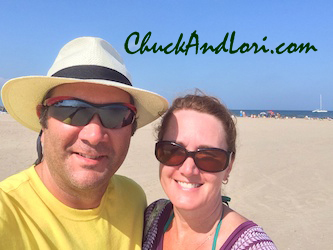Rick Steves, our favorite travel guru, described his first foray into Poland after the fall of the wall in dank and dreary terms. He described a grumpy, off-putting people that you had to go out of your way–albeit with only a smile or two–to warm to. Either times have changed or we are more magnetic personalities than Rick, because I think had we been in need of shirts there would’ve been a few shirtless Poles running around happy that they had run into us.
For us, going to Poland was like going to see an aunt and a big brood of cousins we haven’t seen in ages. You are greeted in restaurants and milk bars with smiles, and if you come back a second time you’re likely to be bear-hugged. Even the homeless people (not any more common in Poland than in any other big city in Europe or America) are polite and friendly. And if you have the opportunity to spend some time in a Polish home, as we did, well, you might not want to leave. But when you do, you will have put on a few pounds because they will feed you like royalty.
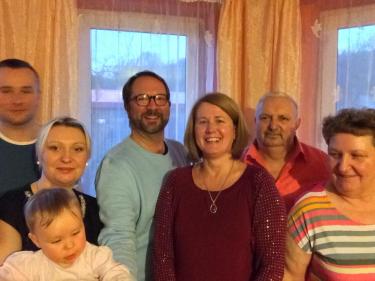
Our “Adopted” Family in Poland
It might seem that Poland is more “daunting” travel than Western Europe. Infrastructure is indeed a bit less developed than elsewhere, and to stray from the beaten path will likely require a car or some patience (and a bit of extra time) in traveling by rail. As seasoned travelers as we are, we made a couple of train rookie mistakes in Poland. In one case we arrived on a platform with trains on either side of us. There was no fancy computer screen up to indicate which train was which, and we got on the wrong one. We had a 50/50 chance. Even a local made the same mistake and had to jump off at the next stop. In the other case we had a very short connection, and with very little information available on the platforms, we hoofed it to our platform just in time to see our train for Prague pulling away (just to be fair, this was a station just inside the Czech Republic, not in Poland, but the lack of station information at rural connections is likely to be similar throughout the countries of central Europe). Ah well, in both situations we eventually made it to where we needed to be.
Language wise, it’s true that we Americans tend to arrive in Europe with a command of “polite vocabulary” in French, Spanish, and German and that we are hard-pressed to come up with the Polish words for “no” or “yes”. But fearing a language barrier in Poland is unnecessary: almost all younger Poles speak English, and any Pole in the hospitality industry will speak English. If you find yourself in a situation with someone who doesn’t speak English, there’s likely to be a friendly amateur translator nearby who will come to your aid. In much of the rest of Europe, a language barrier arises from people who don’t feel they speak English well enough (but they do), but in Poland nobody seems afraid to give their English a try.
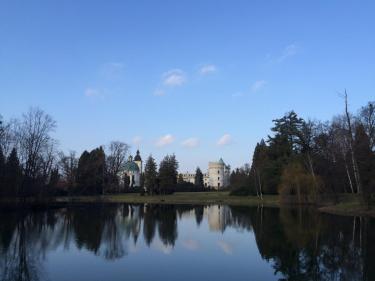
It’s this can-do attitude that’s so wonderful about the Polish people. And it’s likely a great reason Western Europe is investing heavily in Poland (of which American companies should take note). The lower cost of labor might be an initial incentive to invest in Poland for many companies, but I predict it will be work ethic and a spirit of innovation that will make Poland viable in the long run. I will go out on a limb here and predict that, before my life is up, Poland will be on comparable economic footing with Germany and France.
While the future looks promising for Poland, the past hasn’t always been so kind. Poland as a nation has disappeared from the map for centuries at a time, and they’ve been overrun time and again from the east and the west. Just in the 20th century, Poland was carved up by opposing enemies, ignored by pacifist allies, suffered scorched earth policy, and had the most unspeakable atrocities committed on her soil. Perhaps it’s this adverse history that has forged such a people determined to work hard and succeed.
Anyone who visits Poland will enjoy a warm, friendly people and some of the best travel deals in Europe (4-star hotels for $80 and fine dining experiences for $20). And they’ll leave wanting to see the Poles succeed.
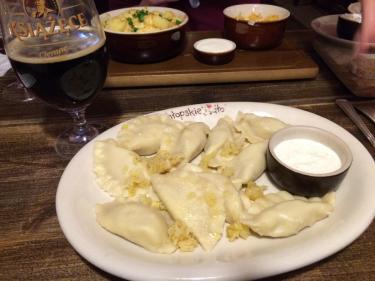
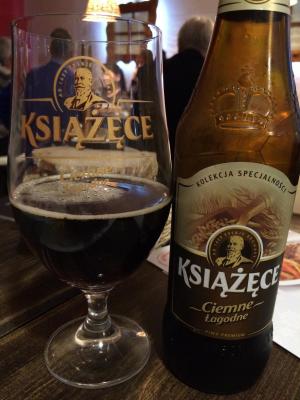
Top: Pierogies; Bottom: Polish beer

